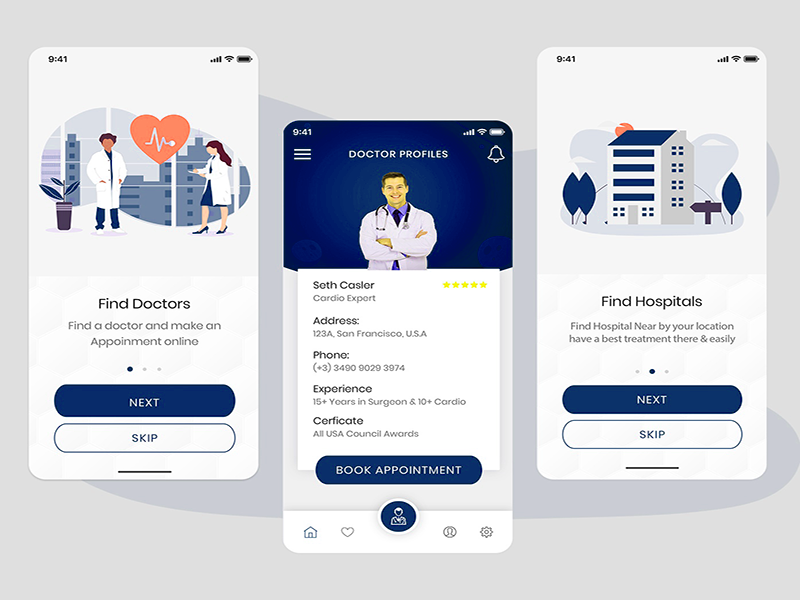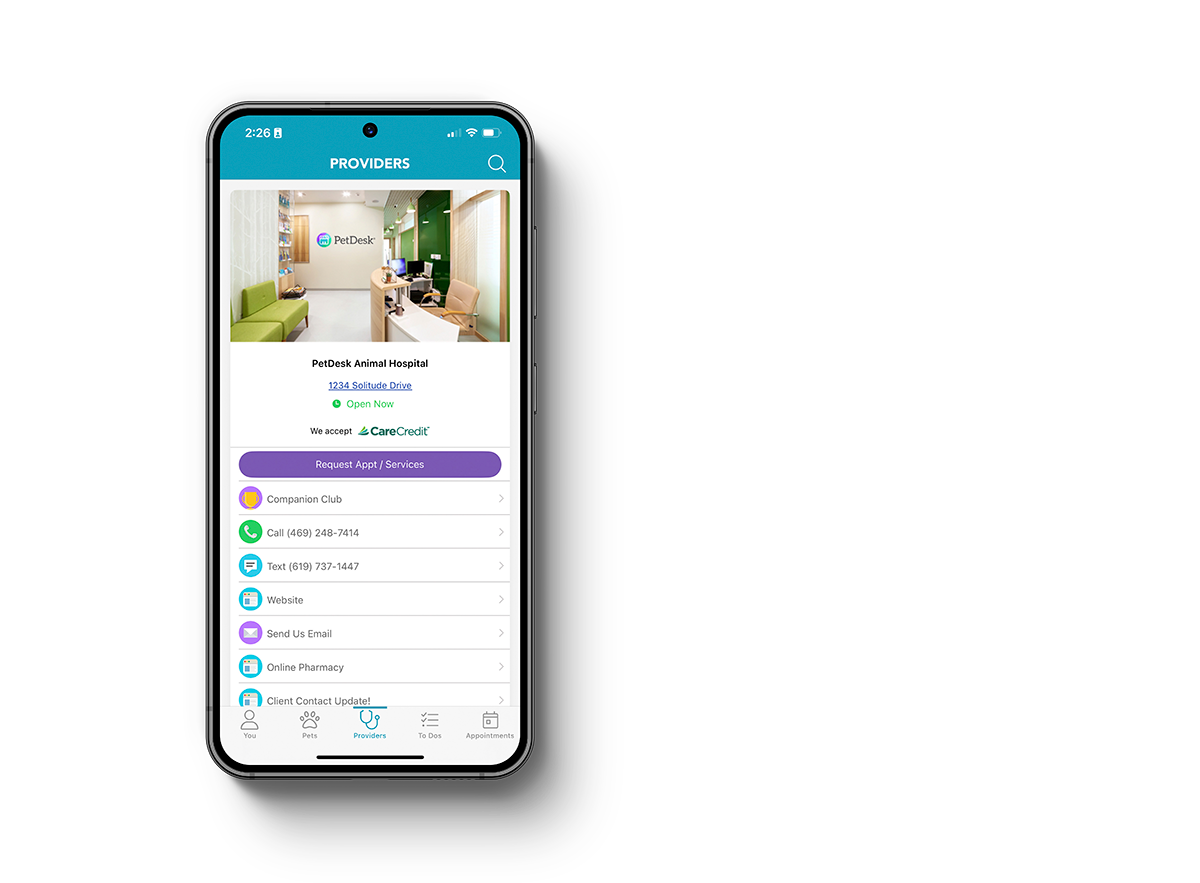Improve Workflow: Why Your Clinic Requirements a Mobile App for Clinics Currently
The Future of Medical Care: Why Clinics Need a Mobile Application Today
As the health care landscape proceeds to evolve, facilities face installing pressure to adapt to client expectations for higher comfort and ease of access. The assimilation of mobile applications can offer as an essential method for improving individual engagement and enhancing procedures.
Changing Individual Assumptions
As the landscape of medical care progresses, client assumptions are undergoing a significant transformation. Today's people are progressively looking for benefit, availability, and customized treatment.
Furthermore, people are ending up being a lot more notified and encouraged, frequently investigating problems and therapies on the internet prior to consultations. This enhanced understanding is combined with a need for openness in healthcare processes, including price quotes and treatment choices. Consequently, carriers are urged to adjust by taking on digital devices that enhance the person experience.
The assumption for prompt and efficient communication has never ever been greater, with several people thinking about responsiveness a crucial component of high quality treatment. mobile app for clinics. In this progressing landscape, health care organizations must acknowledge these altering expectations and take advantage of mobile applications to cultivate an extra patient-centric approach, making certain that they not only satisfy but surpass the standards established by today's enlightened customers
Enhancing Client Interaction

Mobile applications assist in interaction between people and doctor, making it possible for real-time appointment organizing, pointers for medicine adherence, and direct messaging attributes. These capabilities not just boost comfort yet also construct a sense of responsibility amongst patients. Mobile apps can provide academic material customized to private needs, helping people better recognize their problems and treatment alternatives.
The integration of gamification components within medical care apps can also inspire people to engage in healthy and balanced behaviors, enhancing favorable way of life modifications. By tracking progression and rewarding success, patients are more probable to remain committed to their wellness objectives. Ultimately, boosting patient engagement with mobile applications causes enhanced health and wellness results, greater person complete satisfaction, and a more joint healthcare experience. Facilities that prioritize this element will likely see a considerable effect on the quality of care supplied.
Improving Clinic Procedures
Improving center procedures is vital for improving workflow effectiveness and enhancing client treatment. The application of mobile applications can significantly lower management worries, permitting doctor to concentrate extra on individual interactions. By automating consultation organizing, individual check-ins, and payment processes, clinics can minimize wait times and improve total functional effectiveness.
Mobile applications additionally assist in real-time access to individual records, making it possible for healthcare specialists to make informed decisions quickly. This immediacy not only improves the high quality of treatment yet additionally decreases the possibility of errors associated with misplaced or dated details. Furthermore, leveraging mobile modern technology supports a much more well organized strategy to managing person follow-ups and treatment plans, ensuring that no vital steps are forgotten.
In addition, mobile apps can enhance inventory read the full info here monitoring by providing clinics with tools to check supplies and medicines successfully. This enables timely replenishment and helps avoid disturbances in patient care due to stock scarcities. By integrating these capabilities into their daily procedures, clinics can develop a much more reliable and cohesive environment, eventually resulting in improved patient end results and fulfillment. Embracing mobile technology is not simply a pattern; it is a necessary evolution in the health care landscape.
Improving Interaction Channels
Reliable communication is often cited as a cornerstone of quality health care shipment. In today's busy clinical environment, mobile applications can dramatically enhance communication networks between clinics, clients, and doctor. By integrating mobile applications into their operations, facilities can facilitate real-time communications, making sure that people get prompt information concerning their visits, examination outcomes, and therapy plans.
Mobile apps additionally empower patients to interact straight with their healthcare groups via protected messaging attributes. This direct line of communication promotes a feeling of interaction and enables for immediate clarification of issues, which can result in better adherence to therapy procedures. Push notices can advise individuals of upcoming consultations or drug routines, lowering no-show prices and improving total health end results.

Staying Competitive in Healthcare
In a rapidly progressing medical care landscape, organizations should prioritize technology and flexibility to preserve an one-upmanship. The assimilation of mobile applications right into healthcare solutions is no much longer optional; it is vital for clinics intending to boost person interaction, streamline operations, and improve overall solution shipment.
As people progressively depend on digital systems for wellness management, clinics that fail to embrace mobile technology risk dropping behind. A well-designed mobile app can provide functions such as appointment organizing, telemedicine examinations, and accessibility to medical records, supplying patients with convenience and promoting loyalty.

Competitors are additionally buying mobile solutions, so staying resource in advance requires continual improvement and staying informed regarding technological advancements. Clinics must not only implement mobile applications but likewise take part in regular updates and refinements. Inevitably, the successful integration of mobile technology will distinguish forward-thinking medical care companies and established the standard for patient-centric treatment in a digital world.
Conclusion
In verdict, the combination of mobile applications in centers is essential to deal with the progressing landscape of person expectations. Inevitably, the strategic implementation of mobile apps represents a crucial step towards providing customized and accessible medical care, thus meeting the needs of today's encouraged clients.
Ultimately, boosting individual interaction via mobile applications leads to improved health and wellness outcomes, greater patient fulfillment, and a much more collective healthcare experience.Mobile apps also This Site assist in real-time accessibility to individual records, enabling medical care specialists to make informed choices rapidly. In today's busy medical environment, mobile applications can dramatically improve interaction channels in between clinics, people, and health care service providers.Mobile applications also encourage clients to connect directly with their health care groups with safe and secure messaging functions. Inevitably, the tactical execution of mobile apps represents a crucial step towards delivering easily accessible and tailored healthcare, consequently meeting the needs of today's equipped people.